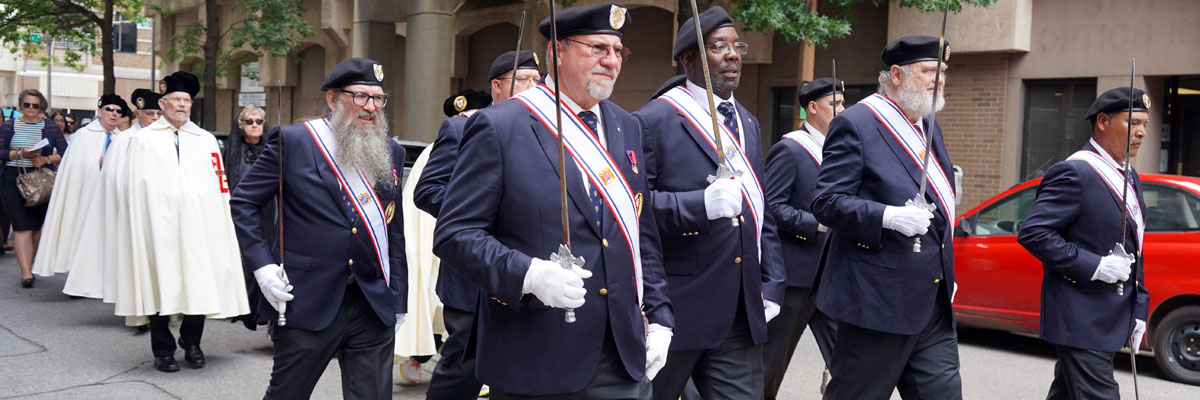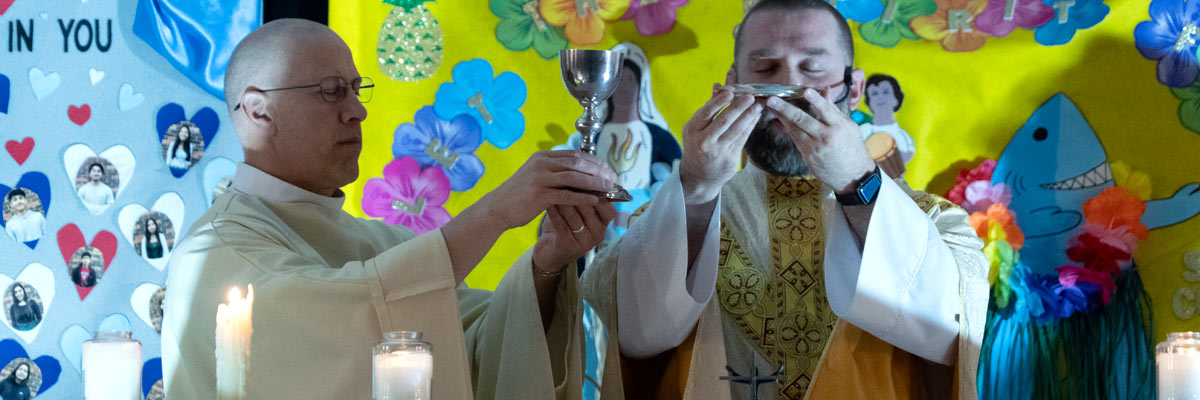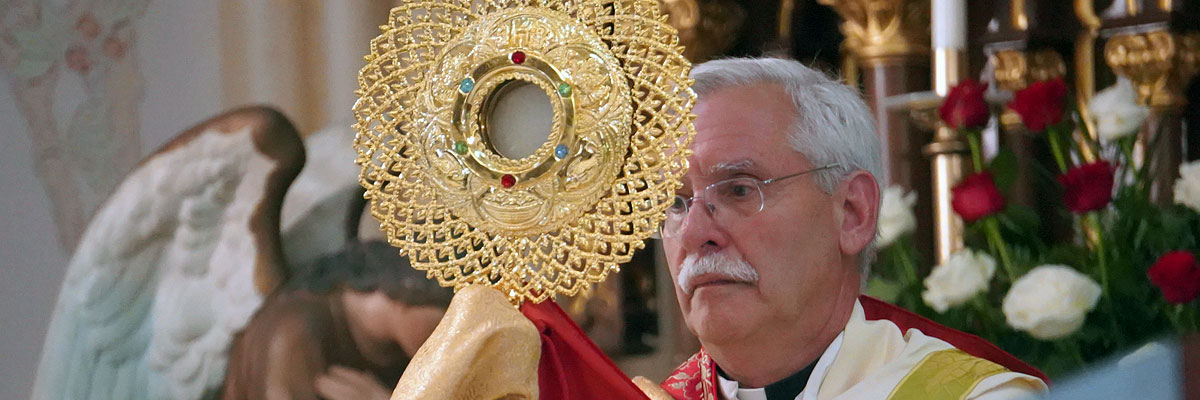Official Website of the
Catholic Diocese of Little Rock
18th Sunday in Ordinary Time, Year B
Published: August 4, 2018
Bishop Anthony B. Taylor preached the following homily Sacred Heart Church in Morrilton on Saturday, Aug. 4, 2018 and St. Mary Church in Altus on Sunday, Aug. 5, 2018.

Bishop Taylor
Many words have several meanings and a skilled speaker can use double meanings to pivot a conversation, getting it moving in a different direction.
In today's Gospel the crowds ask Jesus a series of questions. But Jesus doesn't answer the questions they ask. Instead he uses word play to introduce the hearers to thoughts they had never thought before.
The Gospel begins with the crowds tracking Jesus down on the other side of the lake. They ask him: "Rabbi, when did you come here?" Jesus' doesn't answer this question ... who cares when? He answers instead the question they should have been asking, not when but why?
Jesus is asking them not just to believe him, but to believe in him: to put faith in him personally, to entrust themselves to him, to believe in him like they believe in God. You believe a prophet, his message — but you believe in God, in his very self.
Why have they gone to all this trouble to track him down in the first place? They have just experienced the miracle of the feeding of the 5,000, now: what does it mean? Jesus says, "I assure you, you are not looking for me because you have seen signs, but because you have eaten your fill of the loaves."
They are not interested in the sign, the who and the why, or even the "when" despite the fact that that's the initial question they ask. What they are really interested in is the "how." They think that if they knew how he multiplied those loaves, they could do the same and so never have to work again. They want to be able to perform such miracles, such works of God themselves, for their own earthly material benefit.
So Jesus pivots the conversation, gets it moving in a different direction by playing a little with the word "bread," which has a double meaning here, just as it often does in English. If your son says "I need a little bread" you know he is talking about money, not Wonder bread.
Similarly, "bread" here means not only physical nourishment — food, but also spiritual nourishment — Jesus' teachings, and as we will soon learn, most especially the Eucharist. Jesus challenges the crowd to raise their minds from earthly concerns (how to get bread), to those much more important concerns that lead to eternal life. They should seek this spiritual bread with at least the same desire and effort that they invest in working for perishable earthly bread.
So when they ask how they can perform such miracles, such "works of God" themselves, Jesus uses a little more word play. Only God can work such miracles. What they can do is get with the program: have faith in Jesus, the one whom God has sent. But here again we have a phrase with multiple meanings. "Believe him" is not the same as "believe in him."
People ask for another sign to prove what Jesus is saying ... so that they can believe him, credit the accuracy of his information. But Jesus is asking them not just to believe him, but to believe in him: to put faith in him personally, to entrust themselves to him, to believe in him like they believe in God. You believe a prophet, his message — but you believe in God, in his very self.
And the people do already think Jesus is a prophet, maybe even the Messiah. There was a popular belief at the time that when the Messiah came, God would once again feed them with manna from heaven, just like he did in the time of Moses. So next the people ask for a sign like the manna God gave through Moses: that would prove that Jesus is the Messiah.
But Jesus counters that the manna they are talking about is not as big a deal as they think it is: Manna was heavenly bread only in the sense that heaven was where it came from ... in every other sense it was earthly: temporary physical nourishment.
A few hours after eating manna the hunger returns. Jesus can do a lot better than that and this is the big point he's leading up to, namely that he — his very person — is the true bread from heaven that gives real life to the world: unending spiritual nourishment.
And get this, not only does he give that bread (like God did in the time of Moses), he also is that bread that satisfies every hunger forever. Jesus explains: "I myself am the Bread of Life. No one who comes to me shall ever be hungry, no one who believes in me shall ever thirst again."
The symbol of the Manna is fulfilled in Jesus. Eat manna and you live one day longer, eat the Bread of Life and you live forever!








